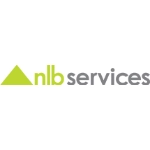© 2026 Next Level Business Services Inc. All Rights Reserved.
Top 7 Soft Skills That Hiring Managers Look for in 2025
By NLB Services
Soft skills are hot skills in today’s times. It’s talk of the past when a polished degree or tech expertise was all it took to land a gig. In 2025, employers and recruiters are looking for more: they want the human stuff that turns an okay hire into a standout. Hard skills still count, no doubt, but the real difference-maker? It’s how you talk, think, and mesh with others.
While hard skills demonstrate what you know, soft skills reflect how you apply that knowledge in real-world situations. The way you interact with colleagues, approach problem-solving, and manage time can determine your long-term career growth. With companies evolving rapidly and technology reshaping industries, professionals with strong interpersonal and organizational skills stand out. With remote jobs, hybrid offices, and nonstop changes, these skills are topping the list of what companies need.
Why Soft Skills For Interviews Matter More Than Ever?
Soft skills aren’t just fluff; they’re the foundations of how you are perceived at work. Hard skills may get you in the door, but soft skills are the ones that keep you there. Machines can crunch numbers, but it’s impossible for them to charm a client or rally a team. That’s all you.
Think about it: when your team is scattered across three time zones and you’re collaborating with AI tools daily, technical skills alone won’t cut it. You need emotional intelligence to read the room during virtual meetings, adaptability to learn new technologies on the fly, and communication skills that work just as well over Slack as they do in person.
Research shows that 85% of career success comes from well-developed soft skills, while only 15% comes from technical knowledge. Yet here’s the kicker, most people spend 90% of their time developing hard skills and just 10% on soft skills. That’s a massive opportunity if you’re willing to flip that script.
Most In-Demand Soft Skills for Interviews
Time to stand out from the crowd? Here are the most in-demand soft skills that’ll make hiring managers sit up and take notice of soft skills in 2025:
1. Communication Skills: Get Your Point Through
Have you ever been in a meeting where the person is mumbling through a pitch and you’re lost five seconds in? Now consider this: someone explains a complex idea, and you’re hooked. That’s effective communication. It’s about talking, listening, and making sure everyone’s on the same wavelength, no matter if it’s face-to-face or over a screen.
Why it matters: Work’s all about connection and clear communication. You’re talking with teammates, clients, or the boss, and if you fail to keep it clear, things go sideways too quickly. Companies need people who can cut across the noise and really hear what’s being said.
How to nail it: Practicing communication with your friend is a great strategy, explain something tough, and see if they understood it.
2. Adaptability: Bend When Needed, Don’t Break
Here is the thing: stuff changes fast, new software drops, deadlines shift, plans flip. You never know which breakthrough can come tomorrow. Adaptability’s all about keeping your cool and rolling with it, not going crazy when the rug’s pulled.
Why it matters: Organizations are aware that change is the new constant and can’t afford rigid types who cling to the old way. They hire people who are ready to jump into the unknown and keep moving, with no hand-holding.
How to nail it: Think of a time you had to pivot, such as mastering a new tool in a pinch. During an interview, say, “I’m good at switching it up,” and back it with that story. They’ll know you’re built for the ride, not just to sit.
3. Emotional Intelligence (EQ): Be Ready to Read the Room
EQ’s knowing what’s going on in your head and picking up on what’s up with others too. It’s staying composed when things heat up and reflecting you understand where people are coming from. Think about this: can you de-escalate a tense client meeting? Do you know how to give feedback that actually helps instead of hurts? Emotional intelligence is your superpower for building relationships and leading teams effectively.
Why it matters: Work becomes people’s enigma sometimes: tempers flare, stress shoots up. Someone with a high EQ can maintain it steadily, build trust, and make the team work better. It’s a must for leading, too.
How to nail it: Try mentioning a moment you smoothed things over, such as talking a stressed coworker off the ledge.
4. Teamwork: Unified Action
Office and work are always a team effort; no one’s a lone wolf at work. Teamwork consists of pitching in, getting along, and making the group hum. Not everyone needs to be everyone’s pal, but just be someone they can count on.
Why it matters: Jobs lean on collaboration. Employers want people who can share the weight and keep the ball rolling, not hog the spotlight.
How to nail it: Highlight a team win—like, “Worked with a squad to hit X goal.” In interviews, talk “we” over “I” and give props. It shows you’re all about the crew.
5. Leadership & Decision-Making: Take the Wheel
You don’t need a management title to be a leader. The best candidates show they can motivate others, take initiative, and influence outcomes. Whether they’re leading a project team or mentoring a new hire. It’s about inspiring action, not just giving orders.
Why it matters: Companies admire people who can lead a little now and maybe a lot later. It’s an indication that you’re not just coasting and you’re committed.
How to nail it: Mention a time you took charge—like fixing a process no one else touched. In an interview, say, “I saw a gap and jumped in.” They’ll spot the fire.
6. Time Management & Organization: Disciplined Execution
Meeting deadlines is an indication of strong commitment. Time management is figuring out what’s first, keeping it tight, and delivering without fail.
Why it matters: Work’s busy—drop the ball, and it’s chaos. Employers need folks they can trust to get it done, no excuses.
How to nail it: Share examples of times when you beat the buzzer, for example, wrapping a task early. Mention a trick like maintaining a daily list that keeps you on track.
7. Professionalism & Work Ethic: Show Up Solid
Professionalism is a reflection of your dedication towards the work: show up on time, own your stuff, and care about the job. It’s not anything flashy, but it’s hard to come by, and recruiters seek it in ideal candidates.
Why it matters: Employers look for reliability over show-off. Someone who’s steady and accountable is worth their weight in gold for employers.
How to nail it: During the interview, refer to a time you went the extra mile, like staying late to fix a snag or release a new campaign.
8. Negotiation & Persuasion: Work the Angle
Negotiation’s an essential soft skill that comes in handy everywhere, be it deals, disagreements, you name it. It’s making your case and finding common ground, not just steamrolling.
Why it matters: Organizations like to work with people who can sway a room or seal a deal without burning bridges. It’s a quiet superpower.
How to nail it: Got a time you talked someone into a better idea, like a cheaper vendor deal? Add it to your interview story.
How to Highlight Soft Skills to Interviewers
Talking about soft skills in interviews is tricky. You simply can’t just say “I’m a great communicator” and expect anyone to believe you. Here’s how to showcase these skills authentically:
Instead of listing qualities, tell stories. “I improved our team’s communication” becomes “When our project team kept missing deadlines due to miscommunication (Situation), I took responsibility for creating a weekly check-in system (Task). I implemented a shared dashboard and 15-minute Monday meetings (Action), which reduced project delays by 40% over three months (Result).”
Your soft skills should shine through in how you handle the interview itself. Show up prepared, ask thoughtful questions, listen actively, and respond to unexpected questions with grace. If they ask about a time you failed, your response demonstrates resilience and self-awareness in real-time.
Don’t just describe what you did—explain why it mattered. “My conflict resolution skills helped two team members work through their differences, which got our product launch back on track and saved the company three weeks of delays.”
Weave soft skills into your experience descriptions naturally. Instead of a separate “skills” section that lists “leadership” and “communication,” show these skills in action: “Led cross-functional team of 8 through major system migration, maintaining team morale and project timeline despite technical setbacks.”
Expect questions like “Tell me about a time you had to adapt to a major change” or “Describe a situation where you had to influence someone without authority.” Have 3-4 solid stories ready that showcase different soft skills, and practice telling them concisely.
Conclusion
Here’s the bottom line: soft skills aren’t “soft” at all, they’re the hardest skills to master and the most valuable ones you can develop. In 2025’s competitive job market, your technical abilities might qualify you for the role, but your interview soft skills will determine whether you get hired, succeed in the position, and advance your career.
The good news? Unlike technical skills that can become obsolete, soft skills only become more valuable with experience. Start developing them now, and you’ll have a competitive advantage that lasts throughout your entire career.
Remember, every interaction is an opportunity to practice these skills: from networking events to casual coffee chats with colleagues. The more you practice, the more natural they’ll become, and the more attractive you’ll be to hiring managers who know that great employees are built on a foundation of strong soft skills. Explore more blogs on interview topics here.
Frequently asked questions
- Are soft skills tested in interviews and assessments?
Absolutely! While you might not see “soft skills test” written on your interview schedule, hiring managers are evaluating these skills throughout the entire process. They’re watching how you communicate during phone screens, observing your problem-solving approach in case studies, and assessing your emotional intelligence through behavioral questions.
Some companies use structured behavioral interviews specifically designed to test soft skills. Others incorporate group exercises, presentation assignments, or even informal coffee chats to see how you interact in different settings. The key is understanding that every interaction is an assessment opportunity.
- What soft skills are most important for freshers?
For new graduates and entry-level candidates, focus on these game-changers: learning agility (showing you can pick up new skills quickly), communication skills (especially digital communication), teamwork and collaboration, and adaptability.
Freshers often worry about lacking experience, but hiring managers know you’re there to learn. What they want to see is your potential to grow, your ability to take feedback positively, and your enthusiasm for contributing to team goals. Show them you’re coachable, curious, and ready to roll up your sleeves.
- What are the essential soft skills for mid-senior positions?
As you climb the career ladder, the stakes get higher. Mid to senior-level professionals need leadership and influence (even without direct reports), strategic thinking, emotional intelligence, and conflict resolution skills. You’re expected to mentor others, navigate complex stakeholder relationships, and drive results through people, not just processes.
Decision-making under pressure becomes crucial too. Senior roles often involve making tough calls with incomplete information, so demonstrating your judgment and ability to weigh trade-offs is essential. Don’t forget that change management senior professionals are often the ones leading organizational transitions.
- How do I prove I have these skills in an interview?
Stop telling and start showing. Instead of saying “I’m a great leader,” share a specific story: “When our team lead left suddenly, I stepped up to coordinate our Q4 product launch. I organized daily standups, created a risk mitigation plan, and kept stakeholders updated. We delivered on time and 5% under budget.”
Use the STAR method religiously, but make it conversational. Quantify your impact wherever possible. Did you improve team efficiency? Reduce customer complaints? Increase employee satisfaction scores? Numbers make your stories memorable and credible.
Also, demonstrate these skills during the interview itself. Ask thoughtful questions that show strategic thinking. Listen actively and build on the interviewer’s comments. If they present a hypothetical challenge, walk through your problem-solving process out loud.
- What soft skills are most valued in remote jobs?
Remote work amplifies certain soft skills while making others absolutely critical. Self-motivation and discipline top the list, you need to stay productive without someone looking over your shoulder. Digital communication skills are non-negotiable; you must be clear, concise, and proactive in your communications.
Time management becomes even more crucial when you’re juggling home distractions and work responsibilities. Emotional intelligence helps you read virtual room dynamics and build relationships without face-to-face interaction. Finally, adaptability is key because remote work technologies and processes evolve rapidly.
The best remote employees also develop strong collaboration skills for virtual teamwork and results orientation, focusing on outcomes rather than just activity. If you can demonstrate these soft skills in your interview with specific examples of successful remote work or distributed team projects, you’ll stand out from the crowd.
Talent Solutions








